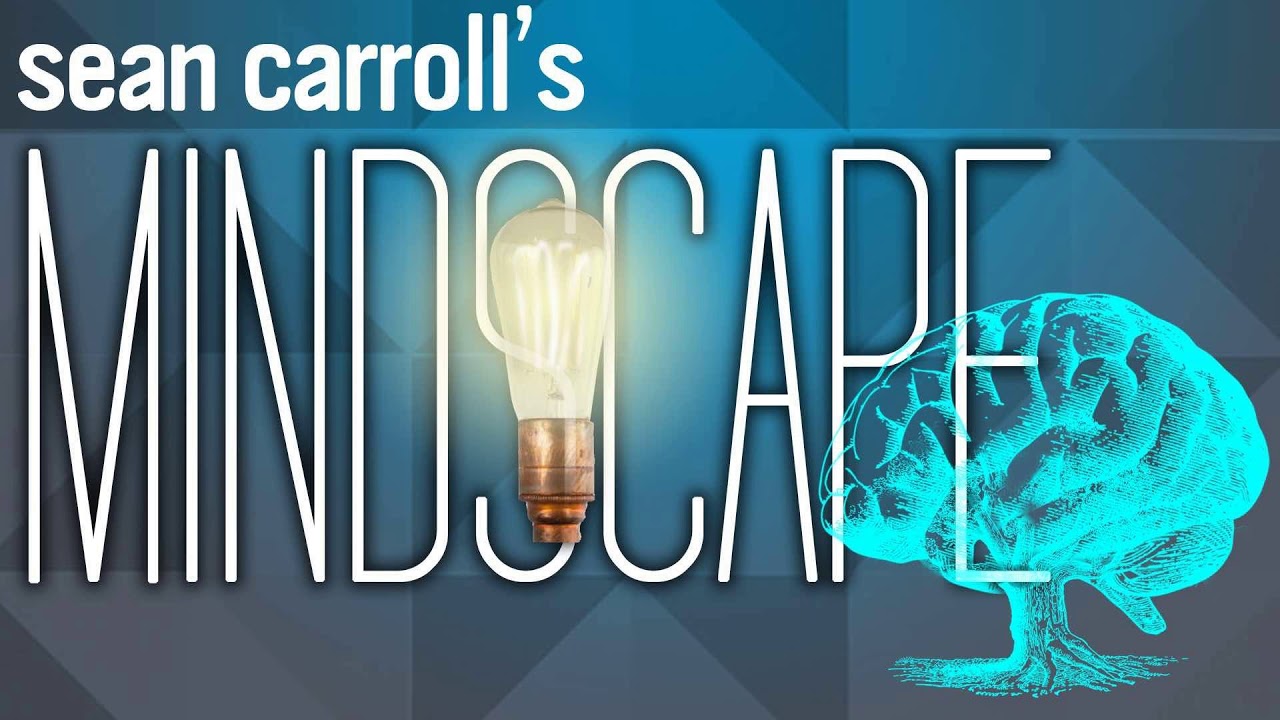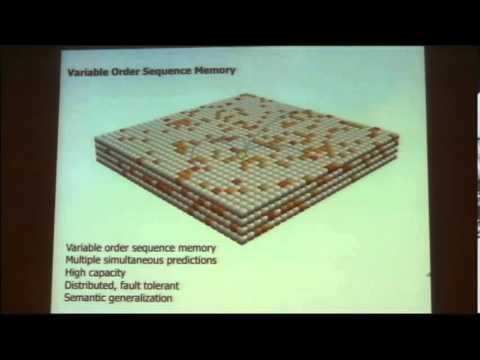Quantum mechanics and general relativity are the two great triumphs of twentieth-century theoretical physics. Unfortunately, they don’t play well together — despite years of effort, we currently lack a completely successful quantum theory of gravity, although there are some promising ideas out there. Carlo Rovelli is a pioneer of one of those ideas, loop quantum gravity, as well as the bestselling author of such books as Seven Brief Lessons on Physics and the recent The Order of Time. We talk about how to make progress on this knotty problem, including whether string theory will play a role (Carlo thinks not).
Carlo Rovelli is a professor of theoretical physics at the Centre de Physique Théorique de Luminy of Aix-Marseille University in France. In 1988, he and Abhay Ashtekar and Lee Smolin introduced the idea of loop quantum gravity. He is also the author of the “relational” interpretation of quantum mechanics.
Source




My head hurts with this one 😅
july 2018 dam only seems like yesterday
Gracias por este podcast. Ojalá tuviera subs en Español para alcanzar a más personas
Fascinating conversation… full of clarity.
So string theory suffers from "preferential attachment", as do certain other theories. This is the human bias toward the popular idea, but it doesn't match the credence afforded by actual experimentation. I love how Sean also teaches us how to think about our ideas so we have a proper "meta" when looking at physics.
"Il tempo non esiste" e "il tempo non è una grandezza fondamentale" sono una affermazione falsa ed una affermazione stupida.
La prima non la ho mai vista pronunciare o scrivere direttamente da Carlo Rovelli (perlomeno finora): di solito la lascia dire agli altri (per esempio ai giornalisti), probabilmente perché gli fa pubblicità.
1) Chiunque può scrivere una equazione della fisica facendo scomparire una variabile a piacere. Ad esempio la descrizione di un moto basata su (s,t), attraverso v=s/t, possiamo descrivere tutto in funzione di (s,s/v), dove il tempo è formalmente scomparso.
Cambiamenti di questo genere si fanno fin dai tempi di meccanica razionale, che si studia al secondo anno di fisica.
2) "Il tempo non è una variabile fondamentale" è una affermazione banalissima, perché riguarda egualmente tutto:
nessuna grandezza fisica è fondamentale: in qualunque descrizione, infatti, possiamo sostituirla con un'altra, come nell'esempio precedente.
3) Il fatto che la gravità rallenti tutto, fino a fermare (quasi) il tempo (ma è quello relativistico percepito da un osservatore non solidale al sistema osservato) non significa affatto che il tempo non esista: sarebbe come sostenere che "La velocità non esiste perché alcuni corpi sono fermi".
Non solo sarebbe un ragionamento insensato, ma un corpo fermo secondo un osservatore solidale ad esso è in moto secondo un altro che solidale non sia.
Idem per il tempo.
Quindi anche la frase "il tempo si ferma" dipende solo dalla condizione di un osservatore rispetto ad un altro.
Il tempo proprio di un oggetto che cade dentro un black hole non si ferma affatto.
4) La rappresentazione più comoda della relatività di Einstein di realizza operando nello spazio di Minkowsky M4 dato dalle coordinate (x0,x1,x2,x3), dove x0=ict e le altre sono le tre comuni coordinate spaziali.
Dire che "il tempo non esiste" equivale dunque ad affermare che "non esiste la relatività di Einstein", la quale tuttavia è stata confermata da oltre un secolo di accurate misure, quindi la verità è che "la relatività esiste ed è giusta" e che la affermazione "il tempo non esiste è una semplice bugia.
A completezza, va osservato un altro controfattuale insinuato dalla insensata ed antiscientifica idea di inesistenza temporale.
Un cambiamento di sistema di riferimento tra O ed O', nel quale il secondo si muova con velocità v rispetto al primo, si configura come una rotazione nello spazio M4.
Ciò significa che per il secondo osservatore la coordinata temporale (sua) x0' è diversa dalla x0.
Quindi, l'enunciato fallace "il tempo non esiste" implicherebbe che per l'osservatore O scomparirebbe una fetta di universo quadridimensionale e per O' una fetta diversa.
Fenomeno che assolutamente non si osserva: i due osservatori semplicemente vedono due rappresentazioni diverse dello stesso universo quadrispaziale.
you should get that Oulette woman on your podcast , shes very smart!
Wonderful lecturer. A rock star!
Wasn't there an idea floating around that gravity exists across all 10 dimensions, and we experience only that portion of gravity which manages to "leak" into this dimension?
Due to lack of deterministic formulation of QM, these pundits are groping in the dark. Algorithm of self-error correcting quantum computing function (Maldacena?) is the only viable way out.
You can not fix a theory by adding extra dimensions one after another. LQG is the answer.
Hey Sean, please do an episode on quantum Darwinism.
You should have Ben geortzel on he’s the leading artificial general intelligence dude in Hong Kong
Excellent discussion.
I’m personally very happy that you read your own audiobooks.
Sean Carroll is well worth listening to and I urge you all to read his books
Very good podcast. Rovelli emphasized correctly that it is a big deal that evidence for supersymmetry haven't shown up yet in the CERN experiments
One day we will figure out a way to break one of the laws of physics and then Quantum mechanics will become graspable or changeable.
I thought spacetime was old news by now… like it is not what it implies.
Great stuff Sean, I'm so happy that a scientist/philosopher of your caliber is producing these high quality pod casts with equally impressive guests…thank you!
Rovelli's ideas about reality, quantum reality, is true. I do not "feel" that the "many-worlds interpretations" is true.
This is amazing!!!
I think of this rendering:
There is "nothingness"which could be dark energy and there's a "spider's web" which would be the quantum gravity field. Energy is like water. When the water droplets from steam are too small they pass through the net but when they reach a certain threshold they form bigger droplets(quanta) which put a dent into the net and add weight to the net, also they tend to roll on the net(this would make them slower) and bend the net, multiple droplets tend to merge together further increasing the dent and if the amount if high enough they tear the net without breaking it but form a very steep valley.
I believe we are in an epoch in physics that’s a progression from Newton to Einstein to something else, perhaps, two or three more revolutionary ideas will come in the centuries ahead. I’m thinking it’s so difficult to quantize gravity because it doesn’t need to be, maybe QM is just fantastic mathematics that’s brilliant at approximating, statistically, the fundamental reality. Is instrumentation failing us? Do we really understand how electronics and materials are behaving? What if time itself isn’t just a simple geometry, perhaps it’s multidimensional, where feilds can obtain superluminal properties, a place where feilds move much faster than we observe even if momentarily, such a property could seem quantum in appearance if unnoticed. Clearly speculation, but I can’t help feel we aren’t yet near the ultimate answer. The bizarre nature of QM seems to be stemming from humanity, possibly we aren’t yet ready to see the universe on its terms, without the haze of human experience. Sadly, if history repeats, it might be centuries before the next Einstein emerges. We all hope Sean will figure it out and explain it to us.
I like that you are not afraid to disagree.
You "botched" Cumberbatch. haha
Idk why I see this guy get so much shit from some people on the internet. He is very reasonable. I guess they have all their baskets made of string.
It's interesting to try to think about cognitive dissonance in relation to new perspectives on gravity from Verlinde (Emergent gravity??) to Rovelli and Smolin (Loop) to MOND, etc., but I am going with Robinson's science fiction book, Mars Trilogy, that merges Loop Quantum Gravity and String Theory into one, if Cumberbatch reads the audio version.
You cannot be "a realist about reality" because the whole aim of physics is to establish what physical reality is, so you don't have the ground to be a realist to start with. That's precisely what you are looking for: the ground where you can actually asume a realist position. If that ground does not pertain to the category of the actual, then your realist position can't be what you say it is, Sean. It's not realism but idealism, which is what you are trying to avoid.
"Benedict Cumberbunch" haha
Please, more episodes with Dr. Rovelli going deeper into Loop Quantum Gravity. This was a really good one!
Cumberbotch…
Amazing Podcast, Sean! I specifically love the intro where you give us some backgrond information on the guest and their area of expertise. Really helps fully digest the whole podcast. Cheers!
he starts his sentences at a volume, then gets less and less loud. then comes the next sentence… it was a pain to listen to this guest, especially with a headset (without it, too). If another guest does this for some reason (perhaps no experience with a mic), pleeeaase, let him / her know early on.
"… string theory requires supersymmetry to work …" I have conjectured that string theory with the infinite nature hypothesis implies supersymmetry and no MOND, while string theory with the finite nature hypothesis implies MOND and no supersymmetry. Google "wolfram milgrom".
Sean:
I am a big fan of yours. I admire (and envy) what a great communicator you are. I enjoy this podcast as well. I can see why you have the office of R.F)!
LQG IS a quantum GR, it is finite, it predicts eigenstates of area and volume, and can quantitatively account for horizons and black hole entropy.
String Theory is a failed non-theory, from wrongly attempting to quantise linearised GR in flat space, and doing whatever it takes to fix the pathologies as you go along. As Penrose would say, it’s what happens when particle physicists try to do general relativity.
Pythagoras would have trouble with 10 or 11 dimensions.
Guys, this ain't that hard. Of course string theory creates gravity. Gravity is a composite force created by the interaction of 4 or 5 quantum energy fields.